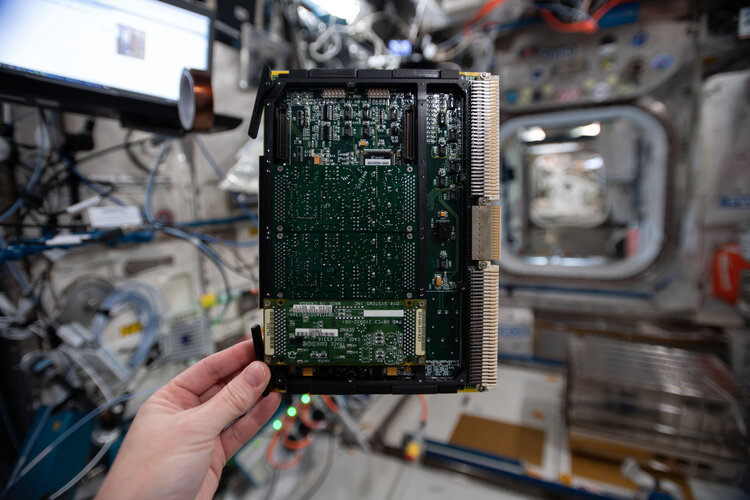
Image:
Science regularly requires maintenance, and the European Physiology Module (EPM) on board the International Space Station needed the latest fix.
Located in the European Columbus laboratory, the refrigerator-sized EPM supports research into the effects of short- and long-duration spaceflight on the human body.
The EPM is a multi-user facility that includes equipment for neuroscientific, cardiovascular, and physiological studies and software that transmits the data to Earth for further analysis.
In September, the crew were alerted to an issue with the Science Module Support Computer’s Extension Board #3, imaged above, which was recently removed by NASA astronaut Kate Rubins.
Despite the EPM failure, a work around has been found to enable Grip and Grasp science operations to continue on schedule. This is all thanks to a major effort by both the EPM payload developers and the Cadmos operation centre located in Toulouse, France. They are under huge pressure to perform tests, ship hardware, and write procedure under the difficulties of lockdown, notably limited site access.
Other experiments, such as Plasma Kristall 4, are delayed until the support computer is replaced.
With its multi-electrode module for neurologic brain scans, sample collection kit for biologic probes and cardiovascular lab to study the heart, EPM is vital to studies probing both space-based and terrestrial problems for the human body, such osteoporosis, aging, muscle degradation and balance disorders.
Regular maintenance of equipment on board ensures the Space Station can continue to be the place for science in low Earth orbit beyond its incredible 20 years of operation so far.
Click here for original story, Boarding issues
Source: ESA Space News